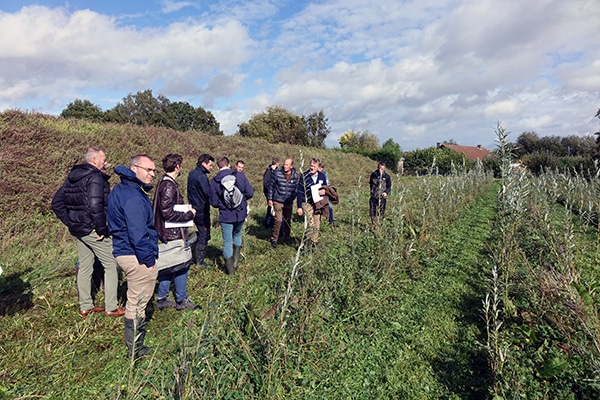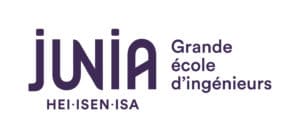On Tuesday, 5 October 2021, the FWVL New-C-Land Interreg project team presented the Biosynergy experience in Ronse, East Flanders, with a tour.
Biosynergy supports the installation of non-food biomass combustion systems. During this visit, CEO Thibaut Deveyt opened the doors of his installation and explained the start-up of a biomass boiler with the development of a heat network.
After visualising how non-food biomass can be used for energy purposes, the willow plots located a few metres from the boiler were also visited, in the company of Olivier Poncin, CEO of Phitech, who is responsible for the plantation. He was accompanied by Marc Verhofstede, Manager of the company Humus, who reminded us of the importance of soil matrix management in the plantation project.
Example of production on SMARG and supra-local valorisation of the generated biomass
Biosynergy valorises biomass and also implements short rotation coppice plantations of willow near its boiler. A heating network has been installed by the company on the industrial estate where it is located and will be used to heat the other buildings on the estate. Ronse is the first city in East Flanders to have a biomass-fuelled heating network. Other plantation projects are being developed on marginal sites.
The Biosynergy demonstration site is located on a new industrial site south of Ronse. Willow cuttings were planted in the buffer zone of the industrial site in 2021. This planting is a first test; it is planned to spread it over the whole buffer zone in the coming years. The company’s aim is to supply other companies on the industrial site with the heat generated by their biomass boiler. A heat network is being installed on the industrial site by Fluvius. Initially, the biomass feedstock will be woody biomass grown on site and wood waste from neighbouring companies. In the future, coppice wood from the maintenance of parks and woods in the municipalities of East Flanders could be an additional raw material. “At present, wood trimmings are not valorised in the municipalities and this could be an opportunity to create an additional bio-based value chain,” explained Jan Foulon, alderman for urban planning at the city of Ronse. In addition, the municipality of Ronse is currently considering developing phase 3 of the industrial site into a biomass cluster. Indeed, Biosynergy was able to explain their objective to develop a “biomass hub” regrouping the municipalities in East Flanders that have wood waste (from roadside maintenance, parks, etc.) that could feed the boiler in the future.
Finally, Mr. Foulon explained how this perspective fits in with the municipality’s ambitions in the face of current challenges and the importance of sustainable development.
A New-C-Land meeting session
The aim of this meeting was to transfer innovative good practices, improve the cross-border transfer of knowledge, capitalise on abandoned territories and, simply, to raise public awareness of the issue of reconverting marginal sites. The project led by Biosynergy is a good example of partnership between Flanders and Wallonia.

